SUMMARY
This is AI generated summarization, which may have errors. For context, always refer to the full article.
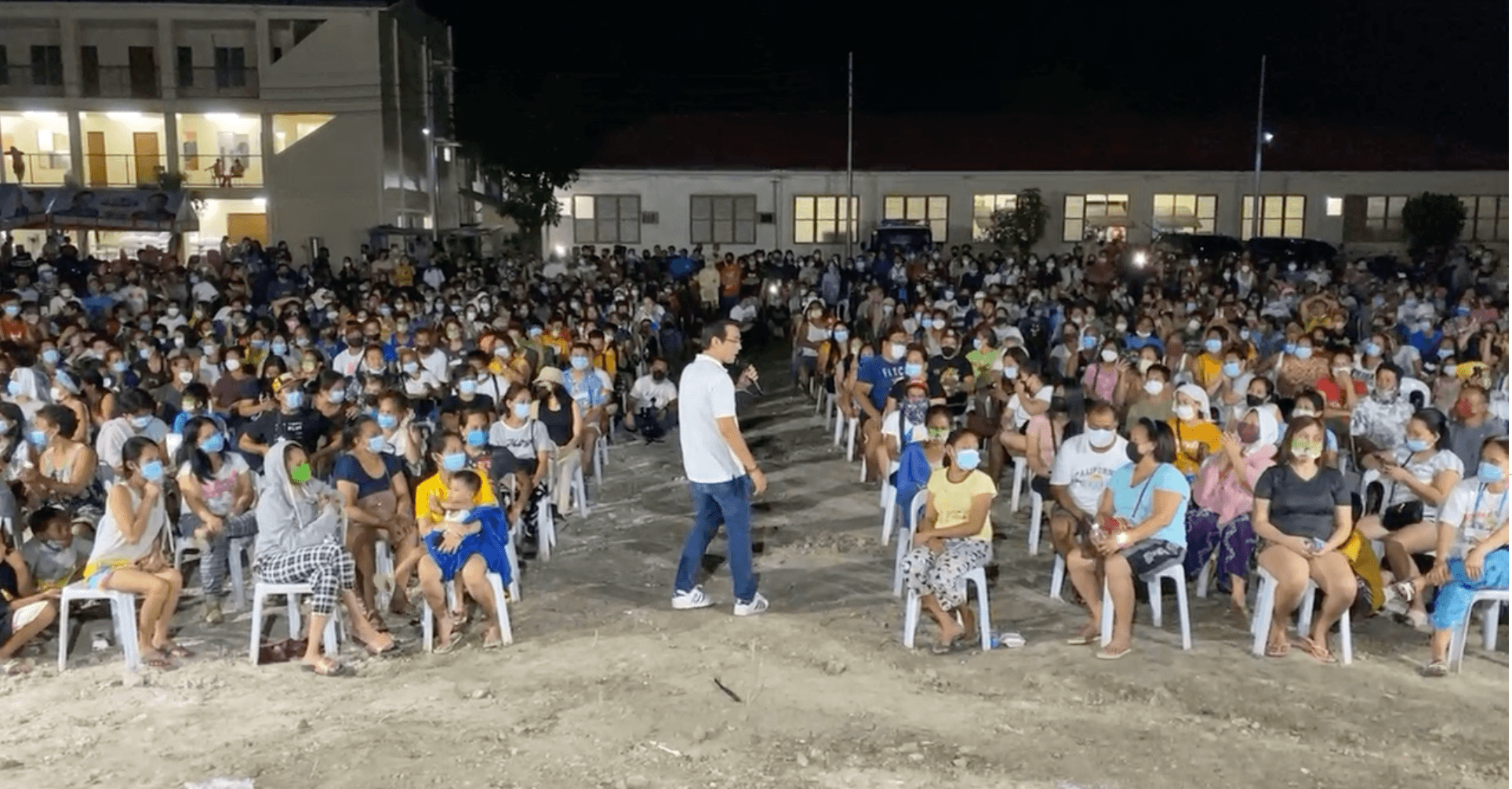
MANILA, Philippines – Manila Mayor and presidential candidate Isko Moreno elicited cheers and applause from hundreds of Caviteños on Sunday night, February 13, after he promised to give each of their families P10,000 in cash after they lost their belongings to a fire.
“Masaya na kayo? Pramis? Sabi ko sa inyo, maraming paraan ang Diyos,” he told the crowd of fire victims temporarily staying in Ladislao Diwa Elementary School. (You’re happy? Promise? I told you God has many ways.)
Moreno said he was told that 790 families were affected by the fire. This means his cash assistance amounts to P7.9 million. He told the crowd that he had sourced it from his personal funds and donations from “friends.” He did not specify which friends.
Moreno, later, on Monday, told Rappler that the cash was distributed to the families.
Vote-buying
Election law expert Emil Marañon III told Rappler that Moreno’s promise of cash aid counts as vote-buying, which is an election offense.
“Even mere promise or offer to give money is already vote-buying under Section 261 (a) of the Omnibus Election Code,” he said.
Marañon was referring to the section in the election law that defines vote-buying. It says that vote-buying is when a person “gives, offers or promises money or anything of value” in order to “induce anyone or the public in general to vote for or against any candidate or withhold his vote in the election.”
The punishment for vote-buying is imprisonment of not less than one year but not more than six years and perpetual disqualification from voting and holding public office.
Another election lawyer, Romulo Macalintal, believes Moreno’s action was not vote-buying but another election offense: making a prohibited donation during the campaign period.
“The distribution of donation of Mayor Isko to fire victims in Cavite is not vote-buying under Section 261 of the Omnibus Election Code (OEC) but may be considered a violation of the law prohibiting the distribution of donations during the campaign period, which is prohibited under Section 104 of the OEC,” he said in Filipino.
Section 104 states that “no candidate…shall during the campaign period, on the day before and on the day of the election, directly or indirectly, make any donation, contribution or gift in cash or in kind…”
While Moreno did not explicitly state he would give families cash if they vote for him, Commission on Elections spokesman James Jimenez, in 2019, said there doesn’t need to be “explicit solicitation of votes” during the act of giving assistance for it to be considered vote-buying.
Jimenez had said this in connection with Bong Go’s frequent distribution of cash aid to fire victims during the 2019 elections when he was running for senator. Go was never sanctioned then and even went on to win a senatorial seat.
On Sunday, Moreno was introduced to the Caviteño families by the host as the “next president of the Philippines.” Also with him while he addressed the crowd were Cavite 1st District Representative Boy Blue Abaya and some local officials. Moreno said Abaya had called him up days before, asking if he could help the families affected by the fire.
Cavite is the second most vote-rich province in the country, with 2.3 million registered voters.
‘Just charity’
But Moreno, on Monday, defended his actions, saying the legal counsel of his team, George Garcia, said “charity” should not count as vote-buying.
“Nagkonsulta naman ako kay Atty. George – kung ako ba tutulong, hindi naman mate-technical? So sabi niya, yes dahil disaster, charity siya,” said Moreno in an interview with reporters in Calbayog City, Samar.
(I consulted with Atty. George – if I help, will I get called out for technicalities? He said it’s okay because it’s considered charity during a disaster.)
But Marañon said the nature of an act as charity is “neither an exception nor defense” under the Omnibus Election Code.
“Vote-buying is malum prohibitum or prohibited per se, intention or motive is immaterial,” he told Rappler.
There are two kinds of crime: malum in se or a crime that is inherently evil like murder or rape, or malum prohibitum or a crime that is not in itself inherently evil, but was made a crime because a law was passed punishing it.
Moreno further defended his cash assistance by saying he has been making such donations to the needy even before the campaign period – donating his modeling fees for victims of the Taal eruption, giving aid to Cebu fire victims. But because the official campaign period has started, Moreno and other presidential bets are now subject to rules binding candidates, including those on vote-buying.
‘Misunderstood’ offense
But Marañon has also written about how vote-buying is the most misunderstood and thus, most frequently committed, election offense.
Technically, vote-buying even includes the distribution of tokens often given away by candidates during public rallies – like T-shirts, hats, bracelets, pens, fans, athletic goods – because they count as “anything of value.”
According to Marañon, even the common promises of candidates to build a town a bridge or create jobs in this or that industry is a form of vote-buying.
“It is also worth noting that Section 261 (a) also treats as vote-buying the acts of giving a promise of future employment or to make an expenditure or cause an expenditure to be made to a community,” he wrote.
But for any candidate to be held liable for vote-buying, a private complainant must file a complaint which would then serve as the Comelec’s basis for its own. Citizens have been asked to email their complaints to sumbongko@votesafe.ph.
Moreno’s promised cash assistance comes after he had been criticized for keeping P50 million in excess campaign funds left over from his 2016 senatorial run.
While the law does support Moreno’s defense that he did nothing illegal, he has been questioned for the ethics of his act. Moreno is also not the only electoral candidate to keep millions of pesos in leftover campaign funds. – Rappler.com
Add a comment
How does this make you feel?
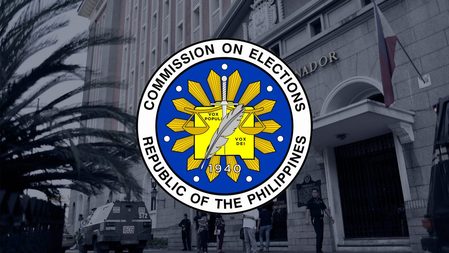









![[New School] Tama na kayo](https://www.rappler.com/tachyon/2024/02/new-school-tama-na-kayo-feb-6-2024.jpg?resize=257%2C257&crop=290px%2C0px%2C720px%2C720px)
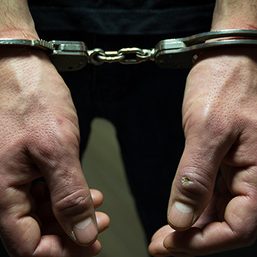





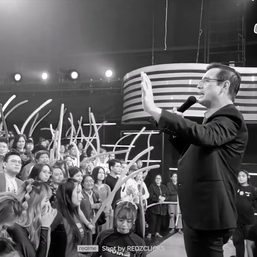
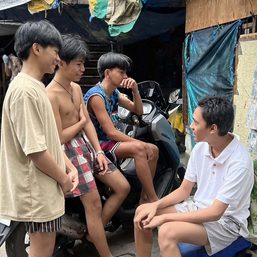
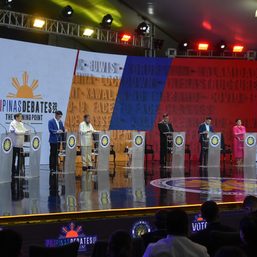
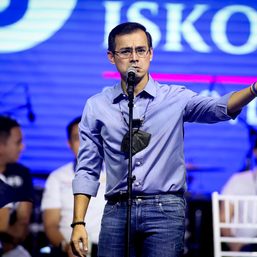
There are no comments yet. Add your comment to start the conversation.